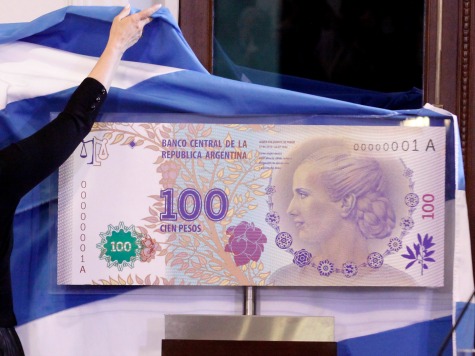If you are a 28-year-old millennial in Argentina, you would have lived long enough for your nation to default for a third time in 28 years at 12:01 AM on August 1. The nation’s Economy Minister Axel Kicillof acknowledged the default after a flurry of last minute negotiations with creditors from around the world. Argentina’s strategy when it comes to discussing paying back debt is to “delay as much as possible while introducing persistent legal ambiguity,” according to Stratfor Global Intelligence service.
There is really no way to feel sorry for the plight of the Argentines: they live in one of the world’s most productive growing region, have an educated population, and their neighbor Chile is a growth leader. But an Argentine joke sums up why the country is so corrupt: “You Americans talk about the glass being half full or half empty. We Argentines just run over and drink it before somebody else gets some.”
Argentina is rated as the 106th most corrupt nation on earth by Transparency International’s annual Corruption Perceptions Index (CPI), which measures the abuse of public offices for private gain around the globe. This compares to neighboring Chile with has a very low corruption rank of 22 out of 177 nations.
Despite a U.S. judge having set a midnight deadline on August 1 for a default and high-level negotiations going on in New York, Argentine President Cristina Fernandez de Kirchner continued to call the bondholders, including Aurelius Capital Management and NML Capital, vultures for demanding to be paid in full on their holdings of $1.3 billion of Argentina sovereign debt.
The President went off to a regional summit for the Common Market of the South, known as the Mercosur, in Caracas, Venezuela. A group of well-intentioned banks in Argentina offered to buy the vultures’ bonds at a discount, but they continued to demand full payment.
Kirchner has made it clear that the reason Argentina does not want to pay bondholders is that she prefers to engage in deficits and unrestrained government spending rather than making debt payments.
At the summit, Kirchner said Argentina has no intention of supporting any loosening of the strict trade restrictions between Mercosur members and refuses to even talk about a new free trade agreement with the European Union or the Pacific Alliance. Both actions would erase Argentina’s $20 billion balance of payments deficit.
It was reported that a big group of President de Kirchner’s supporters had surrounded the Presidential Palace in Buenos Aires and were celebrating the nation’s default as an opportunity to punish capitalists. But with inflation running at 10.9% and the Argentine economy suffering a -.2% contraction of GDP, the economy could fall into a depression and punish the Argentinian poor.
The author welcomes feedback and will respond to reader comments
Chriss Street just returned from teaching “Entrepreneurship and Capitalist Business Strategy”
at Ho Chi Minh University in Vietnam

COMMENTS
Please let us know if you're having issues with commenting.